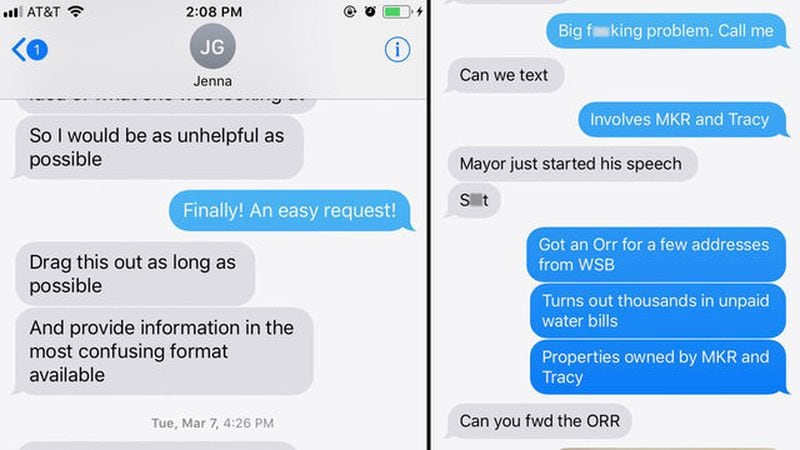Georgia Attorney General Christopher Carr's office on Tuesday referred for criminal investigation text messages sent between former Atlanta Mayor Kasim Reed's communication officials conspiring to delay the release of public information requested under the Georgia Open Records Act.
It is the first time in Georgia’s history that a criminal investigation has been launched in relation to the Georgia Open Records Act.
Channel 2 Action News last year requested water billing records of top elected officials, including Reed and city council members.
Former communications officer Jenna Garland, who now works in the private sector, directed a communications officer for the city's Watershed Department to "be as unhelpful as possible" and to "drag this out as long as possible" when fulfilling the information request.
Garland ends the March 7, 2017 exchange by telling watershed communication director Lillian Govus to “provide the information in the most confusing format available.”
MORE | AJC, experts question Atlanta's handling of legal bills in bribery case
Credit: WSB-TV Handout
Credit: WSB-TV Handout
The text messages appear to be a violation of the Georgia Open Records Act, which mandates that government officials provide responsive documents within three business days of a request if they are available. Obstructing or “frustrating” the release of documents is explicitly prohibited.
“Any person or entity knowingly and willfully … frustrating or attempting to frustrate the access to records by intentionally making records difficult to obtain or review shall be guilty of a misdemeanor,” the statute says.
Clark D. Cunningham, a professor of law and ethics at Georgia State University, said violations of the Open Records law are typically punishable with a fine. But Cunningham said there’s a “good argument” that a conspiracy to violate the law could be a more serious charge.
It is unclear whether the GBI is investigating the texts as a possible conspiracy.
Anne Torres, a spokeswoman for Mayor Keisha Lance Bottoms who was Garland’s supervisor last year, did not immediately provide the AJC with a comment. Reed did not immediately respond to a text message seeking comment.








